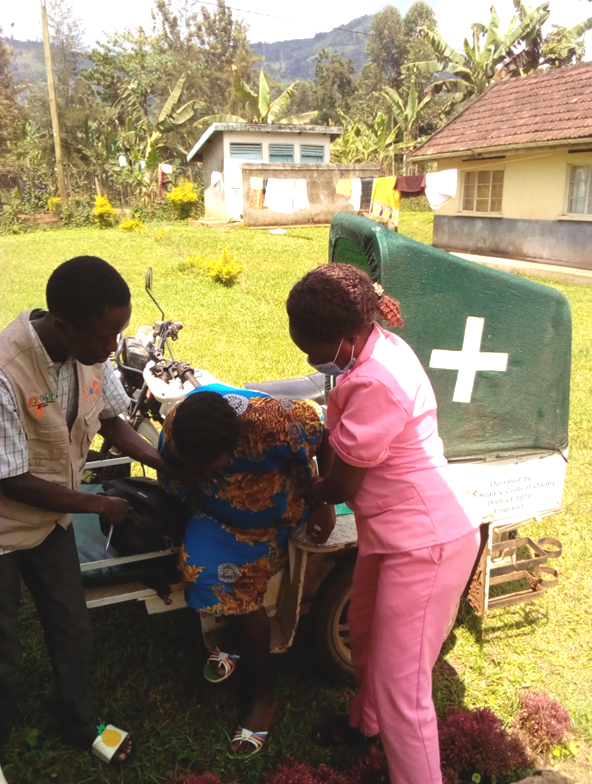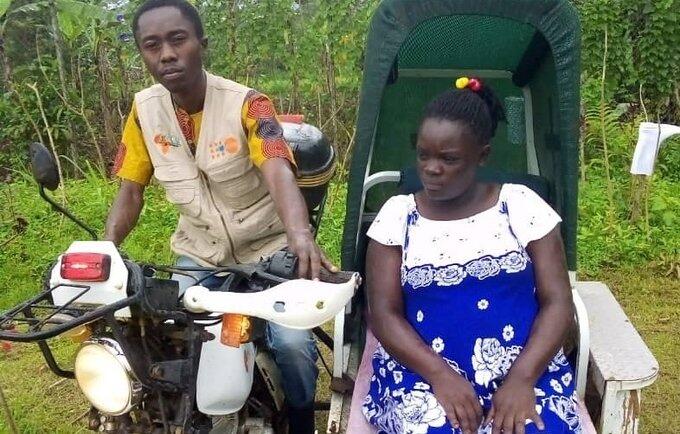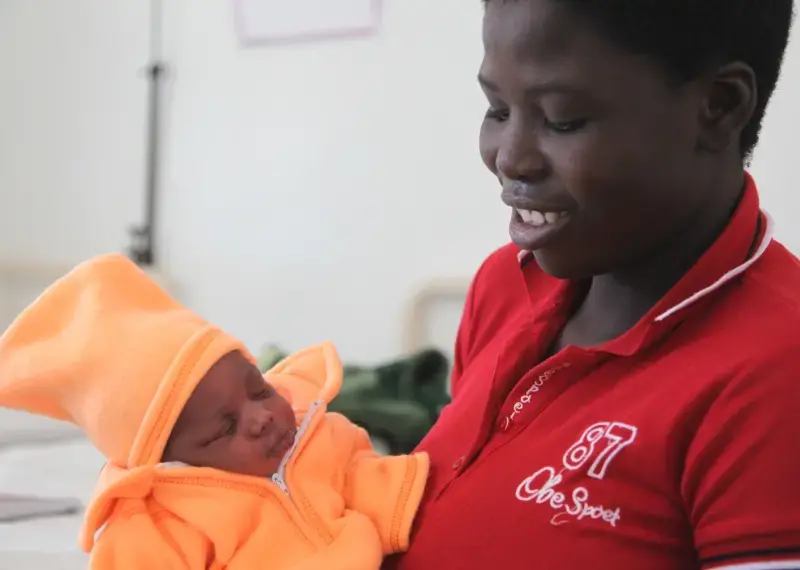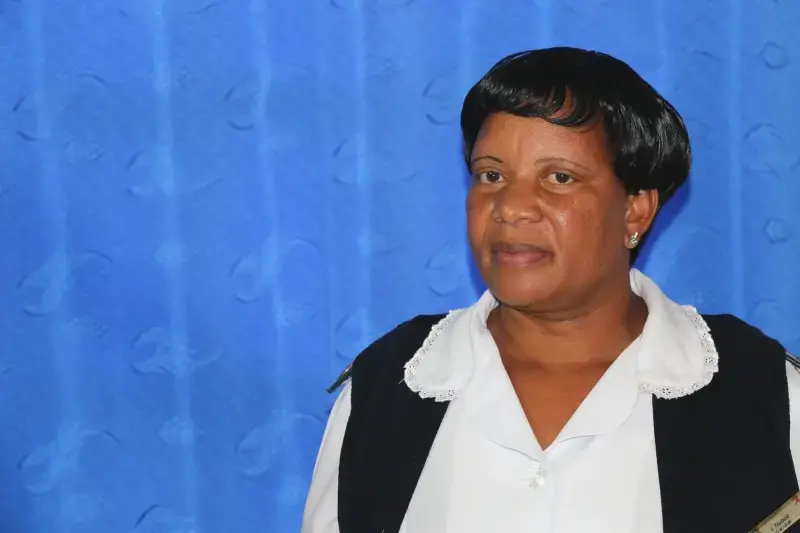BUDUUDA DISTRICT, Uganda—Davis Mukimba is a UNFPA/ACORD community volunteer who doubles up as a motorcycle ambulance rider for Bukigai Health Centre III in Buduuda district, on the slopes of Mount Elgon in Eastern Uganda.
Recently, the district suffered devastating landslides that led to the loss of lives, destroyed homes and displaced people. The mudslides washed away roads and bridges, making it difficult for people to access medical services. The mountainous terrain made it particularly difficult for pregnant women.
Buduuda District Local Government owns the motorcycle ambulance that he uses. Due to a lack of funds to finance a full-time rider, Mr. Mukimba volunteers his services free of charge.
I am called to pick up pregnant women who are in labour. It is very difficult navigating the mountainous terrains with a woman experiencing labour pains.
“As a motorcycle ambulance rider, I am called by community members at any time, sometimes in the middle of the night, to pick up pregnant women who are in labour. It is very difficult navigating the mountainous terrains with a woman experiencing labour pains,” he said.
On average, he refers up to 15 mothers a month, both for inward referrals from the community to Health Centre III and onward referrals to Buduuda Hospital.

Mr. Mukimba has fond memories of some memorable experiences of his community service to ensure that women deliver safely: “One time, at about 8 p.m., I had just sat down after a long day's work to enjoy a meal that was prepared by my wife, when I received a call to pick up a pregnant mother with complications from Bukigai Health Centre III [and take her to] to Buduuda Hospital,” he said. “Along the way, the light of the motorcycle gave up. I improvised with a torch all the way to the hospital, a distance of about 7 kilometres, where she received assistance to deliver safely.”
Safe birth, even in a crisis
In a humanitarian crisis like that experienced during the landslides in Buduuda, family and community structures often break down, leaving young women and adolescent girls especially vulnerable. A particular threat they face is the inability to access health care and the services they need. Health centres and other key infrastructure may be destroyed or inaccessible. Pregnant women fear for their health and the lives of their unborn babies as they wonder if they will be able to deliver safely.
In 2020, floods and landslides affected 45,000 people in the districts of Bundibugyo in Western Uganda, Sironko and Buduuda in Eastern Uganda, causing the displacement of more than 18,000 people.
UNFPA supports the work of community volunteers such as Mr. Mukimba, to ensure that pregnant women give birth safely, with the support of a professional health worker. Mr. Mukimba visits the affected communities to inform them of COVID-19 procedures - washing hands, maintaining safe physical distances and wearing masks. Additionally, he facilitates the formation and mentoring of women and youth groups, mobilizes community members to participate in health camps, and conducts community discussions on sexual and reproductive health and the prevention of gender-based violence. Davis also carries out the mapping of pregnant women in the community, and ensures they get referrals for antenatal care.
In 2020, with funding from the UNFPA Emergency Fund, 6,321 pregnant mothers in the three affected districts were mapped and referred to health facilities for antenatal services, and 3,173 of them gave birth safely with the support of a professional health worker.




